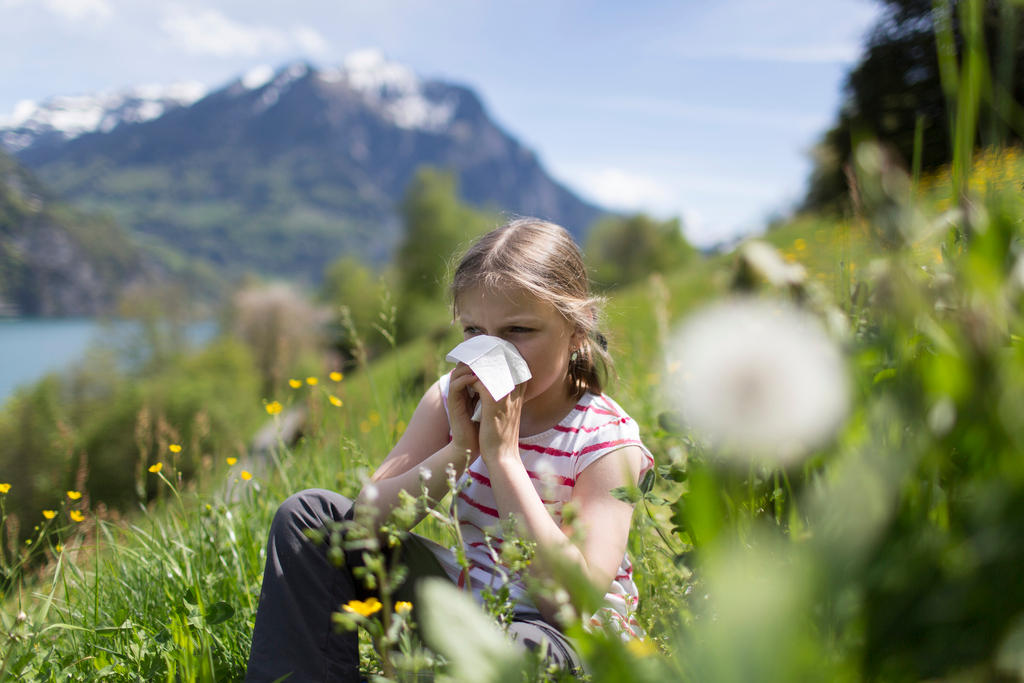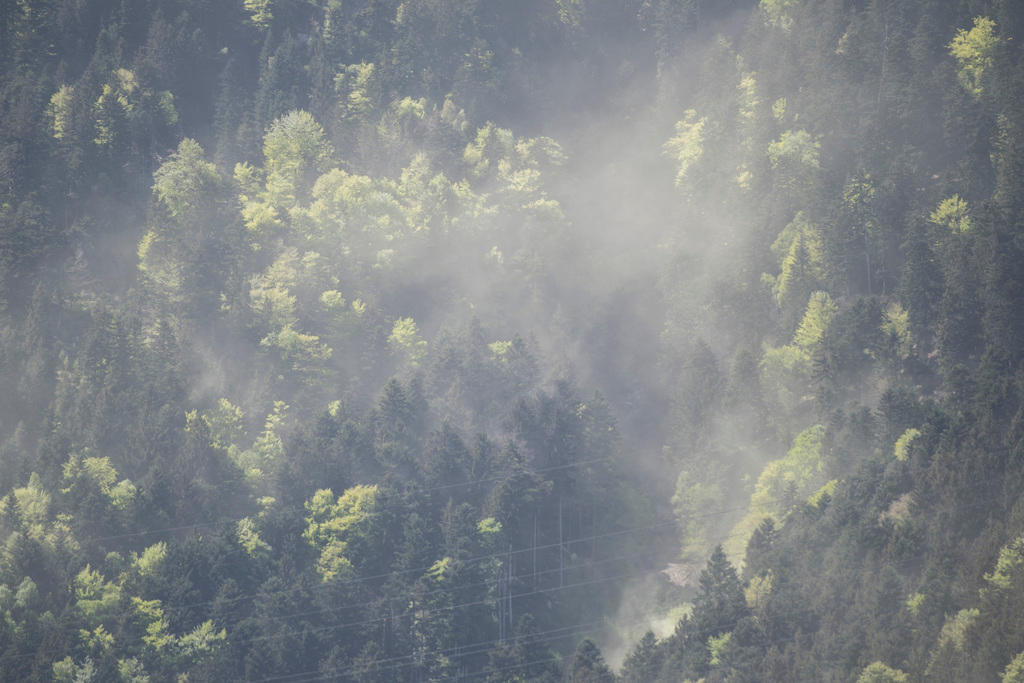Why are allergies on the rise in Switzerland?

Allergies have increased dramatically in Switzerland over the past hundred years for various reasons. Soon, even people living high up in the Swiss Alps will no longer be safe from hay fever.
In 1900, less than 1% of the Swiss population suffered from allergies. Today a quarter to a third of the population do. On Thursday, as part of National Allergy Day 2019, the Allergy Centre Switzerland will be distributing information booklets.
Why have allergies increased so dramatically in Switzerland? Bettina Ravazzolo, expert at aha! Swiss Allergy Centre, says the reasons are to be found in the Western lifestyle.
“Our versatile and exotic menus bring us into contact with more potential trigger points. And our hygiene standards have become so high that our immune systems are confronted with real pathogens less frequently. This means our immune systems react more readily to defend against harmless substances.”
On top of this, there is environmental pollution. “Air pollutants also have effects,” she says. “They can combine with pollen to irritate the respiratory tract more aggressively.”
Climate consequences
Climate change also plays a role in the increase in hay fever cases: the warmer it gets, the longer and more intense the pollen season.
“The season for hazel, birch and ash starts about two to three weeks earlier than 30 years ago due to climate change,” Ravazzolo says.
In the 19th century, many a European upper-class family fled from hay fever and asthma to the Swiss mountains. At more than 1,500 metres above sea level there is less pollen and fewer mould spores, mites and fine dust particles.
But in future, birch, for example, could take advantage of warmer temperatures to spread to higher altitudes, which could lead to more pollen in the mountains.

More
Switzerland to create world’s first real-time pollen monitoring system

In compliance with the JTI standards
More: SWI swissinfo.ch certified by the Journalism Trust Initiative











You can find an overview of ongoing debates with our journalists here . Please join us!
If you want to start a conversation about a topic raised in this article or want to report factual errors, email us at english@swissinfo.ch.